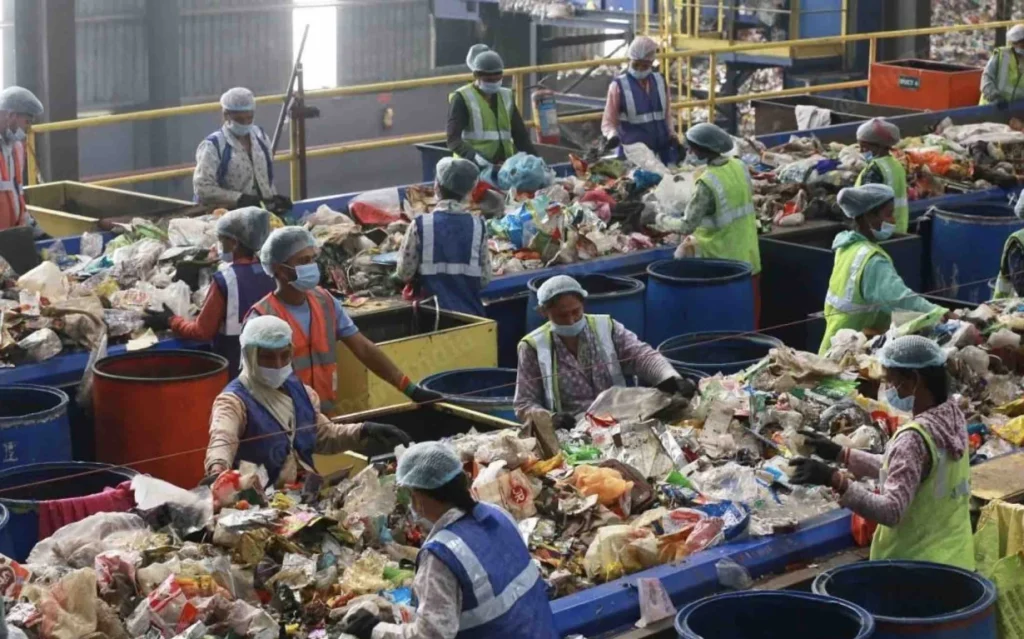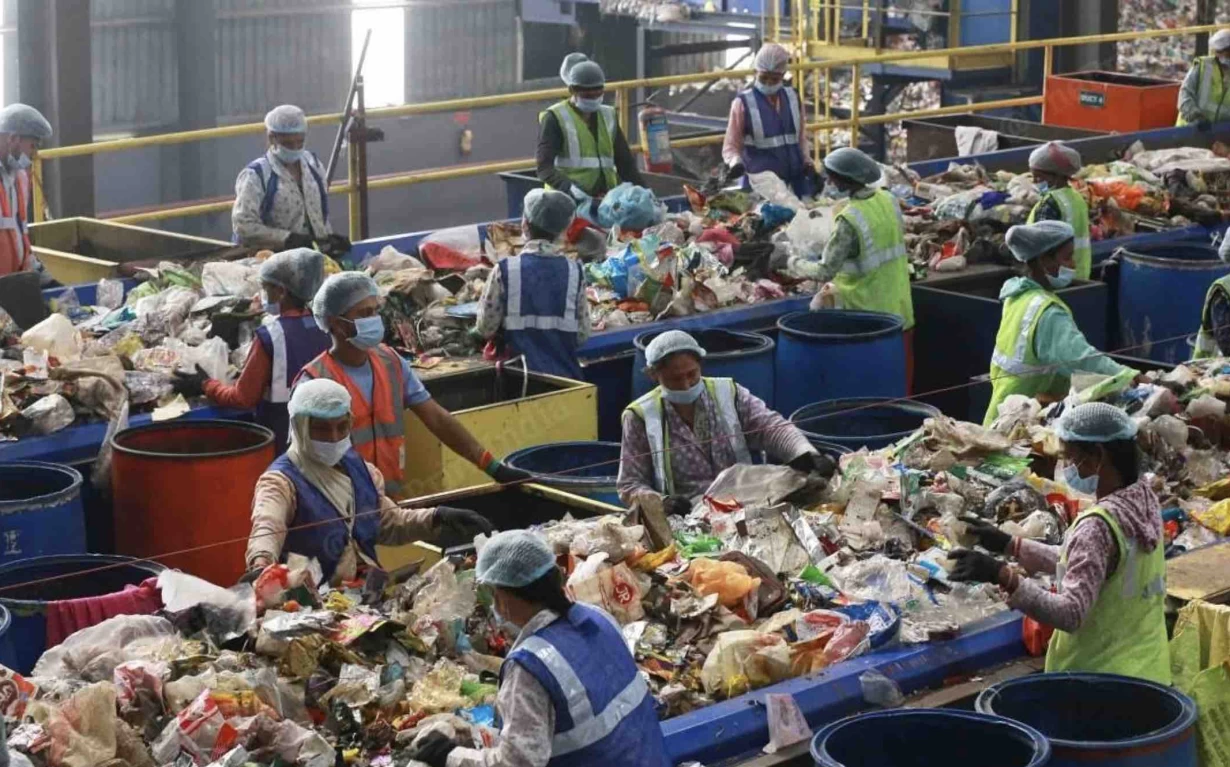
Sustainable Waste Management In Indore: A Case Study
Indore, a fast-growing city in India, has emerged as a model for sustainable waste management practices. Over the past few years, Indore has consistently ranked as the cleanest city in India, thanks to the efficient waste management system put in place by the municipal corporation.
This case study explores the background, challenges faced, solutions implemented, and key learnings from Indore’s successful waste management system.
Indore, with a population of over 3.2 million people, generates around 1,100 metric tons of waste daily. Prior to 2016, the city struggled with waste management, leading to unhygienic conditions, increased pollution, and negative impacts on public health.
However, the launch of the Swachh Bharat (Clean India) campaign in 2014 led the Indore Municipal Corporation (IMC) to undertake a comprehensive transformation of its waste management system. This involved an overhaul of existing infrastructure, policies, and community engagement initiatives to create a more efficient and environmentally friendly waste management system.
Challenges faced:
Lack of waste segregation at the source:
Indore faced issues with mixed waste, which hindered the recycling and disposal process. Unsegregated waste resulted in inefficient waste collection and processing, causing further strain on the waste management system.
Inefficient waste collection and transportation system:
With limited resources and vehicles, the city’s waste collection and transportation system could not keep up with the growing population and waste generation.
Open dumping and burning of waste: The absence of adequate waste processing facilities led to the practice of open dumping and burning of waste, which contributed to air and land pollution.
Inadequate public awareness and participation:
Citizens were not fully aware of the importance of waste segregation, recycling, and proper disposal, resulting in low participation rates and disregard for waste management rules.
Limited infrastructure for waste processing and disposal:
The city’s waste processing and disposal infrastructure was unable to cope with the increasing waste generation, leading to unmanaged landfills and environmental degradation.
Solutions implemented:
Segregation at the source:
The IMC implemented a mandatory waste segregation policy, requiring households to separate waste into wet (biodegradable) and dry (recyclable) categories. This allowed for more efficient waste collection and processing, as well as increased recycling rates.
Door-to-door waste collection:
A fleet of over 600 GPS-enabled vehicles were deployed to collect segregated waste daily from all households and commercial establishments. This ensured timely and efficient waste collection, preventing littering and illegal dumping.
Waste processing and disposal: The city established a state-of-the-art waste processing facility capable of handling 1,000 metric tons of waste daily, including a 15 MW waste-to-energy plant and a 200 TPD (tons per day) composting plant. These facilities enabled the city to process and dispose of waste more effectively, reducing the environmental impact of waste disposal.
Public awareness and participation:
The IMC launched numerous awareness campaigns, involving local celebrities, schools, and religious institutions, to educate the public on the importance of waste segregation and cleanliness. This resulted in increased community involvement and support for the waste management program.
Strict monitoring and enforcement:
Regular inspections, fines, and incentives were introduced to ensure compliance with waste management rules. This helped maintain the cleanliness of the city and encouraged citizens to adhere to waste segregation and disposal guidelines.
Results achieved:
Waste segregation:
Over 90% of households in Indore now segregate their waste, significantly improving the efficiency of waste collection and processing, and reducing the burden on landfills.
Waste processing:
The city’s waste processing facility successfully manages 1,000 metric tons of waste daily, with a 95% waste recovery rate. This has led to a substantial reduction in landfill usage and has minimized the environmental impact of waste disposal.
Cleanliness:
Indore has consistently ranked as the cleanest city in India in the annual Swachh Survekshan survey since 2017. This highlights the success of the city’s waste management system and the active participation of its residents in maintaining cleanliness.
Health and environment:
Cases of vector-borne diseases have dropped by 60% since the implementation of the waste management system, and air quality has improved due to reduced open burning of waste. This has led to a healthier environment and improved overall quality of life for Indore’s residents.
Key learnings:
Political will and administrative commitment are crucial for the successful implementation of waste management systems. Indore’s transformation was made possible by strong leadership and a dedicated municipal corporation committed to addressing the city’s waste management challenges.
Public awareness and participation play a significant role in ensuring the success of waste management initiatives. By actively involving the community and raising awareness about the importance of waste segregation and proper disposal, Indore was able to achieve a high level of public participation and support.
Strict monitoring and enforcement mechanisms help ensure compliance with waste management rules and regulations. Indore’s approach to enforcing waste segregation and disposal guidelines, combined with regular inspections and penalties, proved to be effective in maintaining the city’s cleanliness.
Investing in modern waste processing infrastructure can significantly improve the efficiency of waste management systems and reduce environmental impact. Indore’s investment in a state-of-the-art waste processing facility allowed the city to process and dispose of waste more effectively, leading to a substantial reduction in landfill usage and associated environmental issues.
Indore’s transformation into a clean, sustainable city serves as an inspiring example for other urban centers in India and around the world.
By adopting a comprehensive, integrated approach to waste management, Indore has successfully addressed its waste management challenges and set a benchmark for sustainable urban living.
The city’s experience provides valuable insights and lessons for other municipalities looking to improve their waste management systems and promote environmental sustainability.



